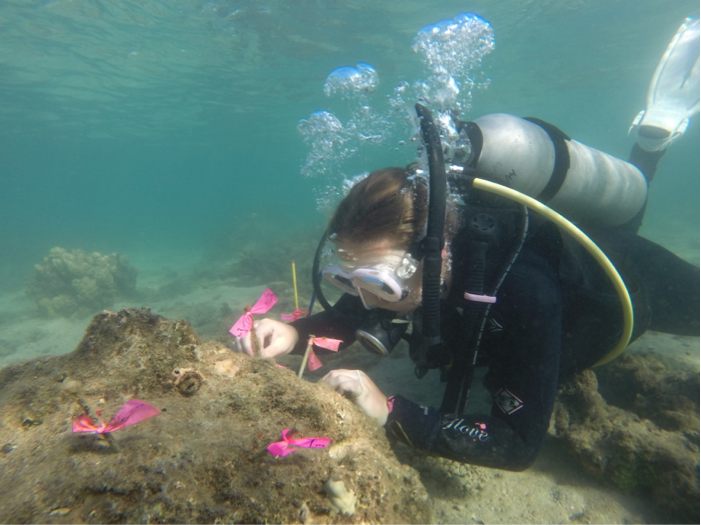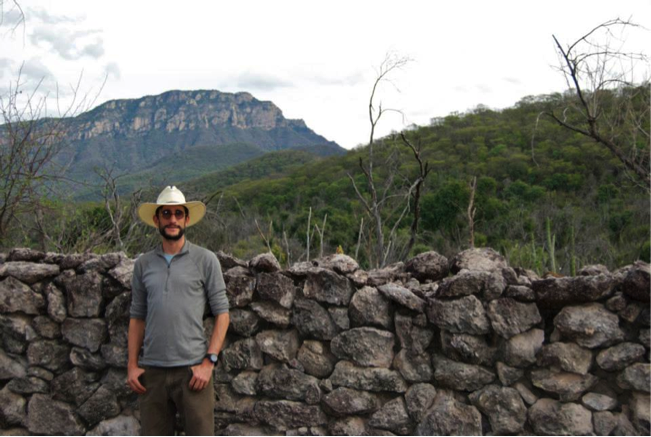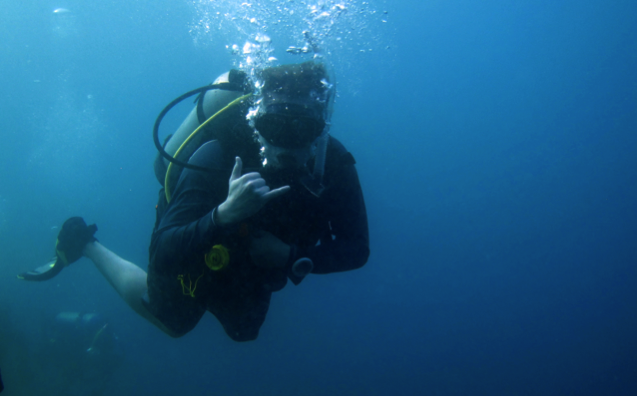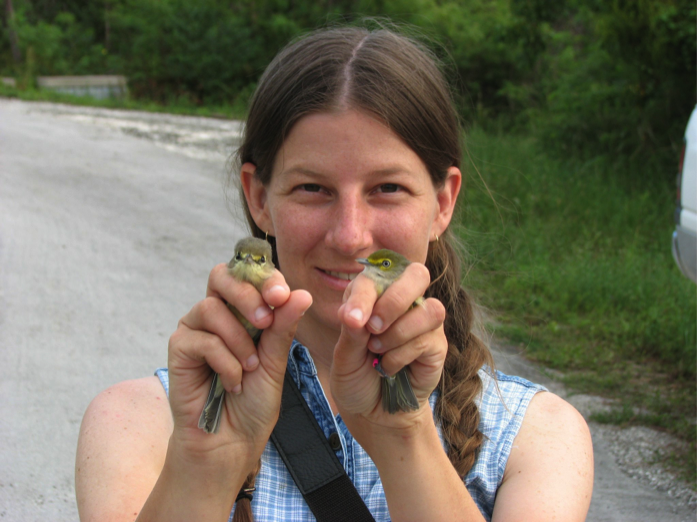Betty and E.P. Franklin Grant Awardees Announced
The Betty and E.P. Franklin Grant in Tropical Biology and Conservation was created thanks to a generous donation on behalf of Betty and E.P. Franklin in 2002.
The awardees of this grant for 2014 are listed below.

Sarah Joy Bittick
Sarah Joy Bittick is a Ph.D. candidate with a research focus on marine community ecology and the consequences of anthropogenic impacts on near shore systems. Sarah grew up in Central California and then attended UCLA to obtain a BS degree in Marine Biology in 2009. After working as a research associate for the UCLA Graduate School of Education and Information Studies, she began the Ecology and Evolutionary Biology PhD program in Peggy Fong’s lab. Sarah’s dissertation work focuses on two foundation species–Turbinaria ornata, a brown macroalga, in the South Pacific and Zostera marina, eelgrass, in California–and the mechanisms that influence the persistence and stability of the communities these important species support.

Charlie de la Rosa
Charlie de la Rosa is a third year Ph.D. candidate in Ecology and Evolutionary Biology Department. He grew up on biological field stations in northwestern Costa Rica, and so began his career in science and conservation at a fairly young age. Before graduate school, he worked and lived on Catalina Island for four years, developing and managing invasive plant and animal programs for the Catalina Island Conservancy. His passion is community-driven conservation in diverse places, and he enjoys working with the ranchers and fishermen of northern Mexico.
Charlie’s main research interests are human-ecosystem interactions, invasive species, community ecology, animal foraging, food webs, and conservation. For his dissertation work, he is studying the drivers of foraging and ranging behavior of free-roaming cattle, and their impact on plant community structure in the tropical deciduous forest near Alamos, in southeastern Sonora, Mexico.

Tyler McCraney
W. Tyler McCraney is a Ph.D. student of Ecology and Evolutionary Biology at UCLA. Before beginning his Ph.D., Tyler worked in the Genetics Program at NOAA Auke Bay Laboratories in Alaska, and received a Master’s degree in Fisheries Biology from Humboldt State University. His interests include marine biology, evolutionary ecology, and everything about fish.
Tyler is studying shrimp-goby codiversification in the Coral Triangle to determine if cooperation can be a key innovation. Snapping shrimps form mutualistic relationships with goby fishes throughout the tropics. The shrimp provides a home for the goby in its burrow, and the goby provides tactile alerts of approaching danger to the shrimp. These mutualistic shrimp-goby communities are remarkable because there is high species richness and low morphological diversity, especially in the Indo-West Pacific, where at least 60 species of goby interact with 20 species of shrimp. Mutualistic goby clades contain four to nine times the species richness as non-mutualistic gobies, suggesting that the mutualism has been evolutionarily advantageous. Furthermore, phylogenetically similar shrimps are associated with phylogenetically similar gobies, hinting that shrimp-goby communities are evolving together. Tyler’s research aims to investigate whether shrimp-goby communities are codiversifying, evolving faster than their non-mutualistic relatives, and forming new species by host shifts. Tyler will use next-generation sequence data to construct time-calibrated phylogenies, and tanglegrams will be estimated between shrimp and goby trees to evaluate codiversification. Diversification rates will be compared among mutualistic and conventional sister clades, and host shift will be evaluated by examining biogeography of sister species that are mutualistic with different partners.

Kathryn Peiman
Kathryn Peiman completed a BSc in 2002 and MSc in 2005 at the University of Guelph in Ontario, Canada. She then decided to pursue fieldwork and participated in several research projects around the world, including Iceland, Alaska, Hawaii, France and Puerto Rico. Craving a project to call her own, Kathryn came to UCLA to pursue a Ph.D. in 2009.
Kathryn is interested in the ecological and evolutionary effects of interspecific competition. The resident Thick-billed Vireo (Vireo crassirostris) and migrant White-eyed Vireo (V. griseus) are morphologically and ecologically similar species that coexist in the Bahamas but only during the non-breeding season. She used the evolutionary comparison of sympatric and allopatric populations to test the effect of heterospecific presence, and the ecological comparisons of low-quality and high-quality habitats, and decline in rainfall from the fall to the winter, to test the effects of natural variation in resource abundance on competition. Kathryn examined whether these species engaged in interference competition, exploitative competition, or experienced physiological effects from coexistence. By addressing multiple aspects of coexistence in the same individuals, her study will provide the most comprehensive examination of non-breeding interspecific interactions of Neotropical passerines to date. Additionally, she was able to provide basic ecological information for the Thick-billed Vireo, a species that has rarely been studied, to the Cornell Lab of Ornithology.
